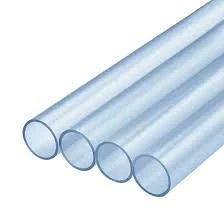Nov . 06, 2024 00:18 Back to list
hdpe pipe sprinkler
The Benefits of HDPE Pipe Sprinklers in Modern Irrigation Systems
In recent years, agricultural practices have increasingly shifted towards efficiency and sustainability, especially in water management. One of the most significant innovations in this area is the use of High-Density Polyethylene (HDPE) pipe sprinklers. Known for their durability and flexibility, HDPE pipes have become a popular choice for farmers and landscapers looking to optimize their irrigation systems.
Durability and Longevity
HDPE pipes are renowned for their robustness. Unlike traditional materials such as PVC or metal, HDPE is resistant to environmental stressors like corrosion, UV rays, and microbial growth. This characteristic allows HDPE pipe sprinklers to maintain their structural integrity for many years with minimal maintenance. Farmers can invest in a long-lasting solution that reduces the need for frequent replacements, ultimately saving both time and money.
Efficient Water Delivery
One of the core advantages of an HDPE pipe sprinkler system is its ability to deliver water efficiently. These pipes feature smooth inner surfaces which reduce friction, resulting in better water flow. This ensures that water is distributed evenly across the fields, reducing wastage and promoting healthier crop yields. Moreover, HDPE’s lightweight nature makes it easy to install and maneuver, allowing for quick adjustments or relocations according to the changing needs of the crops throughout the growing season.
Environmental Sustainability
hdpe pipe sprinkler

As water scarcity becomes an increasing concern worldwide, farmers are under pressure to adopt more sustainable practices. HDPE pipe sprinklers are an excellent solution, as they facilitate precise water delivery that minimizes runoff and evaporation. By using HDPE pipes, farmers can significantly reduce water waste and contribute to conservation efforts. This not only benefits the environment but also assists in meeting regulatory requirements related to water use.
Versatility in Application
Another compelling aspect of HDPE pipe sprinklers is their versatility. They can be used in various irrigation methods, including drip, spray, and subsurface irrigation systems. Whether for agriculture, landscaping, or turf management, HDPE pipes can cater to different irrigation needs. This adaptability makes them a suitable choice for a wide range of crops and landscapes, from vineyards to golf courses.
Cost-Effectiveness
Initially, the investment in HDPE pipe sprinkler systems might appear higher compared to traditional methods; however, the long-term savings can be considerable. The durability and low maintenance costs associated with HDPE pipes mean that farmers can avoid frequent repairs and replacements. Additionally, improved water efficiency leads to reduced operational costs, making HDPE pipes a financially sound investment over time.
Conclusion
In conclusion, HDPE pipe sprinklers represent a significant advancement in irrigation technology, offering numerous benefits that align with the needs of modern agriculture. Their durability, efficiency, environmental sustainability, versatility, and cost-effectiveness make them an ideal choice for farmers and landscapers seeking to maximize their resources. As global water challenges continue to rise, integrating HDPE pipe sprinklers into irrigation systems will help ensure a more sustainable and productive future in farming and landscaping. Embracing such technologies is essential for safeguarding our agricultural practices and ultimately, our planet's resources.
-
High-Quality PPR Pipes and Fittings Durable ERA PPR & PVC PPR Solutions
NewsJul.08,2025
-
Black HDPE Cutting Board - Durable, Non-Porous & Food Safe HDPE Plastic Cutting Board
NewsJul.08,2025
-
High-Quality CPVC Panel Durable HDPE & PVC Panels Supplier
NewsJul.08,2025
-
Double PE Welding Rod Supplier - High Strength, Durable & Versatile Welding Solutions
NewsJul.07,2025
-
High-Quality PVC-O Pipe Supplier Durable 75mm PVC Pipe & Connections Leading PVC Pipe Company
NewsJul.07,2025
-
HDPE Drainage Pipe Supplier – Durable & Corrosion-Resistant Solutions
NewsJul.06,2025

